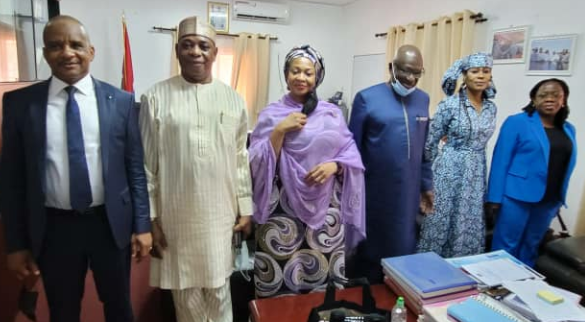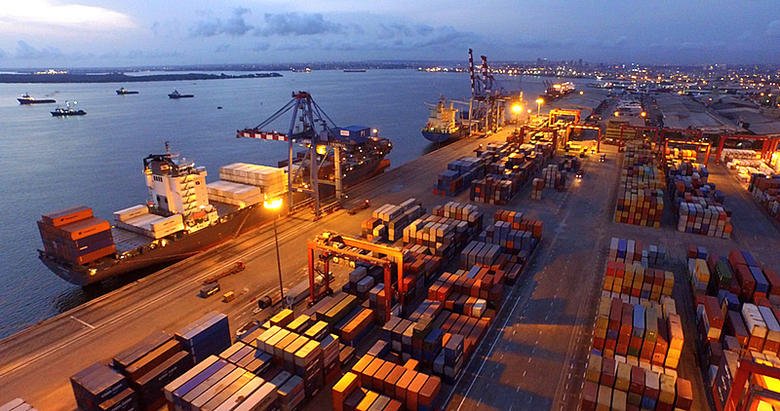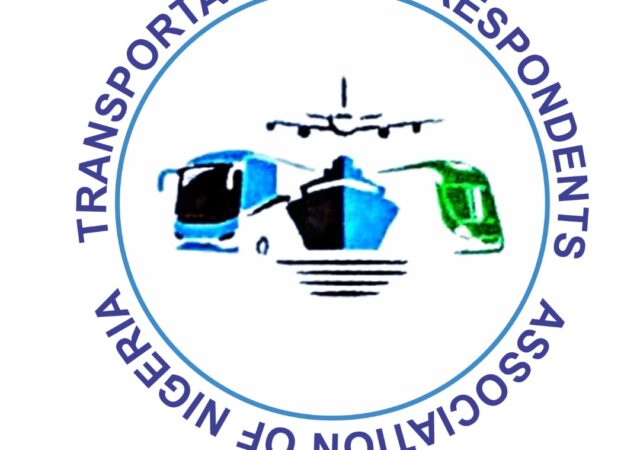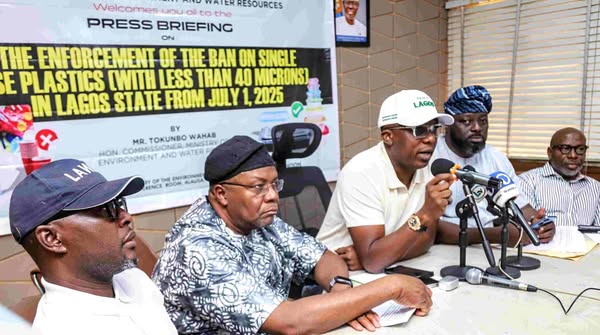* To provide effective management to increase trade and combat regional maritime challenges
* Nigeria’s Adalikwu in pole position to win election as Secretary General
By Samuel Nwosu and Hope Attari Monday
These are not the best of times for the West and Central African Maritime Industry. With an almost constant stream of major problems to tackle, the challenges besetting the regional industry took an upswing during the Covid19 lockdowns by various countries and exacerbated the negative operational issues in the industry.
The strategic importance of this region, which includes the Gulf of Guinea, has never been this hard-pressed. Some of the most important global sea lanes pass the continent of Africa. Major routes navigate the Cape of Good Hope between the Atlantic and Indian Oceans, through the Red Sea and east-west through the Mediterranean Sea. The Gulf of Guinea itself, which borders more than 3,700 miles of West African coast, between Guinea and Angola, is strategically important for shipping, with an array of developed ports and a wealth of hydrocarbon deposits that accounted for an estimated 40percent of Europe’s oil imports in 2013; home to 60percent of Africa’s oil production, 25percent of Africa’ maritime trade (2021), 20 commercial seaports with four percent (4%) of global fish production.
To put this in perspective, even though Africa’s maritime industry is still very much undeveloped, 90percent of imports and exports in Africa is facilitated by sea.
This places a burden of responsibility on existing regional maritime bodies such as The Maritime Organisation of West and Central Africa (MOWCA). MOWCA was established in May 1975 (Charter of Abidjan) as the Ministerial Conference of West and Central African States on Maritime Transport (MINCONMAR). The name was changed to MOWCA as part of reforms adopted by the General Assembly of Ministers of Transport, at an extraordinary session of the Organisation held in Abidjan the Republic of Cote d’Ivoire from 4-6 August 1999. The over-riding role of MOWCA is to ensure for the sub-region a cost-effective shipping service high on safety and low on pollution.
MOWCA unifies 25 countries on the West and Central African shipping range (inclusive of five landlocked countries). These countries comprise of 20 coastal states bordering the North and South Atlantic Ocean, while the ports of the Ocean interfacing countries provide the seaborne trade of the five (5) countries that are landlocked.
The focus of MOWCA policy is on the following:
* Encouraging participation of the private sector in West/Central Africa in ship operations particularly in coastal shipping
* Development of coastal shipping networks and establishment of feeder systems to connect hub and spoke ports,
* Port development and facilitation with particular reference to achieving a cost effective / faster ship turnaround time
* Creating special berths and conditions for landlocked countries,
* Coastal /feeder shipping in MOWCA ports and
* Strengthening of service-oriented shippers’ councils to effectively protect and represent the demand side of the industry
Unfortunately, 45 years after its establishment, MOWCA has not lived up to its billing and has been over-run by debilitating challenges. This is evidenced in the profusion of strategies and agreements which the organization have not been very contributory to; nevertheless the organization needs to stand up and start taking ownership of its maritime space to ensure relevance for its member countries and safeguard maritime benefits.
In a couple of months, several candidates will be vying for the post of Secretary General of ‘MOWCA’ on expiration of the term of the current secretary general, Mr Alain Luvambaco from Angola, who took over from Mr Magnus Addico in 2011. And whomever takes the helm will be tasked with oversight responsibilities, coordinating the resurgence to relevance of the organization and the sustainable development of the regional maritime trade.
But it is not as simple as it sounds…..
This task will not be a joyride as there are several issues that are already begging for resolution:
- Maritime Security – Maritime security (or is it insecurity) has become an albatross. Piracy and Armed Robbery remain the greatest challenges to the growth of the regional maritime trade. While the outcome remains the same, piracy is seen as banditry committed in international waters while armed robbery, even on the seas, is termed that if it happens within national waters. The maritime smuggling of drugs, oil, antiquities, charcoal, ivory, and other goods facilitates transnational criminal networks and funds terrorist groups. Weapons trafficking fuels conflicts around the globe, and with more private armed activity at sea, the line between state and non-state action is blurring when it comes to maritime security. There needs to be a wholistic review of the regional security architecture to take advantage of existing partnerships and how the ‘Yaounde code’ would inter-relate with emerging and established national security strategies
- Integration and Harmonization of Maritime Strategies and Policies:There are several policies and strategies that have been developed over the years at national, regional, and inter-regional levels. And there is also the African Union ‘owned’ Africa Integrated Maritime Strategy 2050, a wonderful document that still remains only on the paper it was written.
- Trade and Financing Growth – The Regional Maritime development Bank was touted as the next best thing to help increase regional maritime trade. But 20years after it was first mooted, the bank is still not fully established. Yes, there have been recent developments to kickstart the bank with Nigeria having been selected as the headquarters of the bank; but the challenge remains ensuring that all MOWCA members fulfill their financial pledges for the take off of the bank. And then creating the necessary industry confidence is another challenge on its own.
- Blue Economy – The Blue Economy, which is the sustainable exploitation of resources in oceans, seas, lakes and rivers, has the potential to significantly accelerate economic growth and potentially reduce poverty across Africa, considering its enviable marine and terrestrial natural resources. However, most of these riches, particularly the marine resources which contribute to the Blue Economy, are yet to be responsibly utilised to foster the economic transformation of a rich yet poor continent in the world. There remains a leadership vacuum to explore, implement and deepen the evident benefits of a transformative inclusion of the blue economy into Africa’s maritime growth strategies for country and regional development.
- Marine Governance and Sustainability – While the blue economy is a facet of sustainable development for the maritime sector, the intertwined issues of marine governance and environmental sustainability, provide new opportunities to refocus the industry towards generating and upskilling green maritime jobs. It is also an opportunity to re-align the sector on global concerns for climate change mitigation and ensuring environmental stability.
Africa’s growth in the maritime industry highlights the potential for positive impacts on its socioeconomic development, especially of coastal states, but it also poses challenges. As Africa’s maritime sector grows, with increasing marine traffic and cargo volumes through its ports, so does the potential for heavier environmental and social impacts. There are opportunities to ensure environmental sustainability in the maritime industry which revolve around several issues including; green shipping, marine pollution, atmospheric emissions, ship breaking and a component of the blue economy, ‘blue finance’. The challenge is to ensure integration of these concepts into marine governance and ensure that states have the opportunity of maximizing green benefits.
These challenges all point to one thing; the need for an effective and innovative leadership. And that is what MOWCA is scouting for.
Leadership
A few names have been thrown into the ballot for the leadership of the regional body. Most prominent, however, is that of Dr. Paul Adalikwu, Nigeria’s nominee for the post of Secretary General.

Adalikwu’s resume reads like a tailor-fit for the MOWCA job. Presently a Director of maritime safety and security in Nigeria’s federal ministry of transportation, he has garnered an enviable track record in regional diplomacy and international affairs, tourism and policy.
A key anchor of the 2019 Global Maritime Security Conference hosted by Nigeria in Abuja; he has been instrumental to the take-off of the regional maritime bank. Furthermore, he has been involved in policy efforts to improve maritime security.
As a tourism advocate, he was at one time Nigeria’s Acting director general for its Tourism Development Corporation (NTDC). This was before a stint at the Federal Ministry of Water Resources, Nigeria where he was directly responsible for the coordination of the 2018 International Conference on Lake Chad which brought about international support, solutions and financing towards ameliorating the Lake chad and taking it back to its level of years past.
Ghana, Equatorial Guinea, Sierra Leone, Democratic Republic of Congo, Cameroun, Niger Republic, Cote D’Voire and Gambia are among countries that have expressed their support for Nigeria’s Adalikwu.
For these countries, their collective interest is in seeing an improved regional maritime body that would be beneficial to member states. A MOWCA that would be deliberate in sustaining efforts towards effective communication between member countries; preserve their marine environments from pollution and maritime crimes while maximizing maritime benefits.
Part of his vision are plans to enhance communication by instituting English, French and Portuguese as official languages of MOWCA and embedding same in all MOWCA’s communications including its website; increase cross-regional maritime cooperation, enhance international maritime support and enhance maritime stakeholders input in the sector; operators, shippers and ports.
And Nigeria’s Adalikwu seems to be the Man to take MOWCA back to a place of sustained development.
To most watchers of the regional maritime sector, with the recent technological advances, MOWCA needs to build on its achievements over the last few years and transition towards meeting the yearnings and expectations of member states; through promoting maritime trade, safer routes and environmentally efficient shipping among its member countries.








murchm